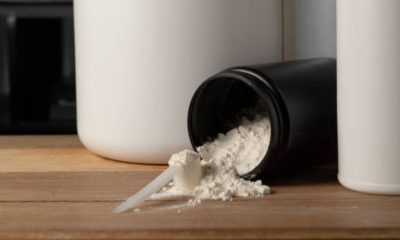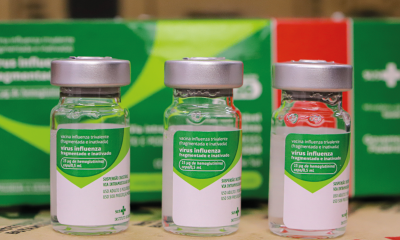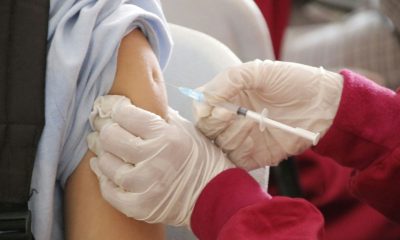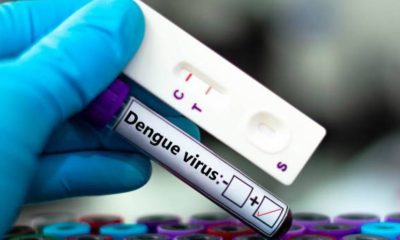
Curiosities about your tooth that you still don’t know
Follow Us @
Curiosities about your tooth – Learning to care for your teeth is as much a part of growing up as learning to tie your shoes, recite the alphabet, or memorize the multiplication table.
Curiosities about your tooth
When it comes to our teeth, many still have one thing or more to learn. Dental surgeon, specialist in periodontics and oral health expert Dr. Bruna Conde reveals some facts about your teeth that you may not know yet, check it out:
Did you know that teeth are the hardest part of the human body?
Teeth are hard, white and full of calcium, but they are not considered bone. Teeth are made of calcium, phosphorus, phosphate and other minerals. The difference is that bones, in addition to all that, also contain a lot of collagen. Due to the presence of this protein, bone becomes flexible, unlike teeth, which are very rigid structures.
Do you know how many and which parts form a tooth?
1 — tooth enamel Tooth enamel is a protective barrier that surrounds the visible part of the tooth. Healthy enamel is resistant to the bacteria that cause decay. Due to its mineral composition, tooth enamel is translucent.
Fortunately, enamel can be strengthened with fluoride. Parents can help strengthen their child’s tooth enamel at home with fluoride toothpaste. Dentists also offer special fluoride treatments, which are often given to children to help keep their teeth strong and free of decay.
2 — dentin Underneath the enamel and along the roots of the teeth is dentin, a living tissue made up of bone-like material. It forms most of the tooth structure and has microscopic tubules. It is extremely vulnerable to the bacteria that cause tooth decay and can also result in dentin sensitivity when exposed. 3 — cementum Cementum provides a protective layer around the roots of teeth, similar to enamel but a little softer. This layer has the function of ensuring root stability, as it is firmly attached to the fibers responsible for keeping the tooth adhered to the alveolar bone.
4 — root The roots of a tooth anchor it to the alveolar bone, allowing the teeth to withstand the force applied in everyday biting and chewing food. According to the American Academy of Periodontology, one of the main threats to the health of a tooth’s roots is periodontal disease. It is caused by plaque bacteria that invade the gum tissue and alveolar bone, causing the destruction of the bone that holds the teeth in place.
5 — root or pulp canal Dr. Bruna Conde explains that it is a hollow chamber present in a tooth that houses its root canal or pulp. This varies from tooth to tooth, as some have only one root, while others have two or three, as is the case with premolars and molars.
This area of the tooth is very sensitive and is responsible for ensuring that the teeth receive the proper amount of blood flow and nutrients to keep them alive. When this area is damaged or infected by extensive caries and trauma, root canal treatment is often required to prevent tooth extraction.
Did you know that your teeth’s first best friend may not be your toothbrush?
Of course, a toothbrush and floss are extremely important allies that you should use every day to keep your mouth clean and free of disease and cavities.
But the first line of defense is something that already exists naturally in your mouth. Your saliva. Main mouth disinfectant combatant.
Understand
Tooth decay is caused by bacteria that feed on sugars in foods and drinks. This bacteria – called plaque – can adhere to teeth, producing acids that eat away at tooth enamel. Saliva, that old trusted friend, helps to rinse the mouth and neutralize this process.
If you have dry mouth, getting the same result can be difficult. The buffering effect of saliva, saliva’s ability to fight the harmful effects of sugar, means that if you don’t have enough saliva, you have a real problem.People who take a lot of medication can be extremely susceptible to dry mouth and possible tooth decay.
“In my appointments, I calculate the ideal amount of water and liquid for consumption. We generally think that 2 liters is enough for everyone, but each person will have an ideal amount of hydration. Carry your water bottle with you at all times to remind and stimulate.” indicates Bruna Conde
“If dry mouth is a persistent problem and often causes a lot of discomfort, be sure to seek professional help, visit your dentist who specializes in saliva and you trust.
The dentist must carry out the saliva test called sialometry, and in the office he must study each case and rely on the help of modern equipment that stimulates saliva.” Concludes Dr. Bruna Conde.
Featured Photo: Playback
Follow AFRILATEST on Google News and receive alerts for the main news about celebrities, soap operas, series, entertainment and more!
SHARE POST AND EARN REWARDS:
Join our Audience reward campaign and make money reading articles, shares, likes and comment >> Join reward Program
FIRST TIME REACTIONS:
Be the first to leave us a comment, down the comment section. click allow to follow this topic and get firsthand daily updates.
JOIN US ON OUR SOCIAL MEDIA: << FACEBOOK >> | << WHATSAPP >> | << TELEGRAM >> | << TWITTER >
Curiosities about your tooth-
News2 months ago
Harry decides to appeal after loss of police protection in the UK
-
Good News TV series2 months ago
Preta Gil is the new presenter of TVZ on Multishow
-
Good News TV series2 months ago
Justin Bieber and Hailey go to church using a powerful car
-
Good News TV series2 months ago
Fuzuê: Pascoal is sentenced to more than 70 years in prison
-
Health and Fitness2 months ago
Hyperbaric Oxygenation accelerates recovery from knee injuries, according to USP study
-
News2 months ago
Viradouro wins the Rio de Janeiro Carnival title in 2024 now news
-
Culture2 months ago
the Sub4 Turismo package that we recommend and we go (on the 42 km)
-
Good News TV series2 months ago
Cris discovers Isis's pregnancy. And now?










































